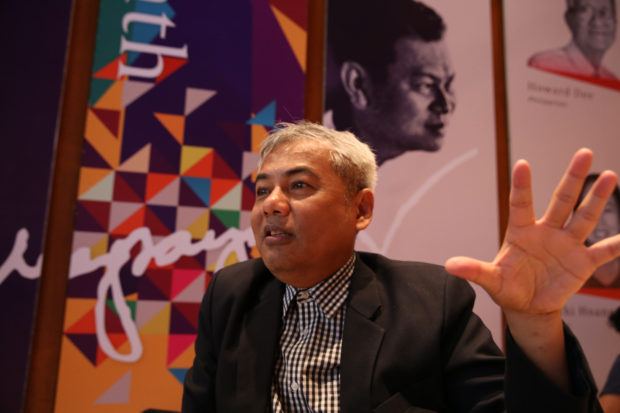Cambodia genocide survivor makes ‘homecoming’ to PH

Youk Chhang: The past can present difficult lessons, but without them, you will not understand or appreciate the present and be optimistic about the future. —JOAN BONDOC
When Youk Chhang first set foot in the Philippines in 1986, he said it felt like he was making his first steps to “heaven.”
After all, it marked the start of the arduous journey to freedom for the young Cambodian refugee who had lost his childhood and suffered years of torment and torture under the brutal Khmer Rouge regime.
At the Philippine Refugee Processing Center at Morong in Bataan province, he was finally free from the bloodbath that killed five of his eight siblings, his father and nearly 60 relatives.
“For the first time after being dehumanized as a prisoner, everyone in the Philippines called me their friend,” said Chhang, now 57, in an interview with the Inquirer on Tuesday. “I first reclaimed my humanity in this country.”
More than 30 years later, the longtime civic leader was making a homecoming of sorts when he returned to receive the Ramon Magsaysay Award, regarded as Asia’s highest honor.
Article continues after this advertisementThe award, to be given on Friday, recognized Chhang for “his great, unstinting labor in preserving the memory of the Cambodian genocide, and his leadership and vision in transforming the memory of horror into a process of attaining and preserving justice in his nation and the world.”
Article continues after this advertisementDark period
For Chhang, a survivor of the genocide that killed over 2 million Cambodians, that dark period remains a monumental challenge for his countrymen to recognize.
Beginning in 1995, he took on the colossal task of investigating, documenting and memorializing the crimes against humanity committed by the Khmer Rouge from 1975 to 1979.
Untold stories
He served as executive director of the Documentation Center of Cambodia, which began as a Yale University project before it became an independent institute under his leadership in 1997.
His two decades of work uncovered stories otherwise untold. His efforts led to the digital mapping of more than 20,000 mass graves in Cambodia’s “killing fields” and the identification of over 100 prison sites.
Over a million documents related to the genocide—including more than 10,000 interviews of both victims and perpetrators—had been collected, providing evidence in the war crimes trial that sent three Khmer Rouge leaders behind bars.
It was a deeply personal mission for the Phnom Penh-born Chhang, who was captured, enslaved and tortured by the Khmer Rouge.
“My childhood will never be returned to me. This is something that I can never forgive the regime for doing to all the children, the mothers and the innocent,” he said.
Stealing mushrooms
When Chhang was 14 years old, he was seized by Khmer Rouge forces for trying to steal mushrooms for his starving and pregnant sister. He was severely tortured in front of helpless villagers.
“I remember that this was when I was most broken and beyond repair,” he said. “This is what genocide does: it breaks families, communities and societies.”
He witnessed horrors that continue to haunt and pain him, especially the time when the Khmer Rouge tried to prove that one of his sisters had stolen some rice. They slashed open her stomach and finding it empty, they left her to die.
At 17, his mother sent him away to the Thai border to escape. He became a refugee in the Philippines for a year before making his way to the United States.
Chhang had thought that he could move on from his personal horrors to begin a new chapter in his life when he served with a United Nations peacekeeping mission in Cambodia in 1992.
But he saw that the Khmer Rouge continued to be active in Cambodian politics and when they threatened his mother and another sister, he realized he had to do something.
“That’s when I began to understand that without confronting the past and learning from the mistakes, you cannot be a better society,” he said.
Collective healing
After more than 20 years of extensive documentation, Chhang hopes that his life’s work would lead to national reconciliation and collective healing.
He now oversees the building of the Sleuk Rith Institute in Phnom Penh, which will house a museum, archives, library and a resource center for a world still scarred and threatened by the same crimes that plagued his life.
As the years of horror recede to the past, Chhang is hopeful that the present and future generations would strive and demand to learn their history to create a better society.
“The past can present difficult lessons, but without them, you will not understand or appreciate the present and be optimistic about the future,” he said. “I do not want the young ones to live in the past and be enslaved by their horrible history, but it is necessary to learn from it so we can move forward.”
Chhang said he dedicated the award that brought him back to his second home to his own mother and to all the mothers both in Cambodia and in the Philippines.
“I feel this award is also a new obligation … a pressure on me to do more,” he said. “Receiving this award is like being a proud son to all mothers in Cambodia and in the Philippines.”